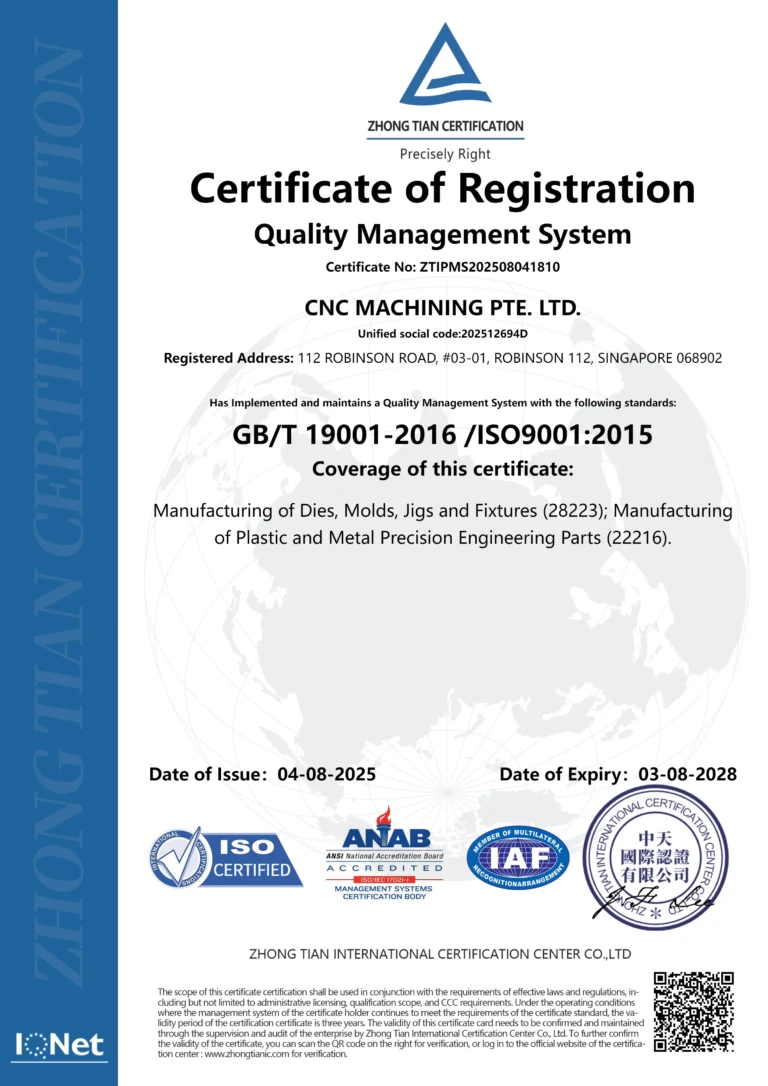Unlocking Accuracy: Your Affordable CNC Milling Machine Guide
CNC milling machines have transformed manufacturing, bringing industrial-grade accuracy to the range of small businesses, startups, manufacturers and even enthusiastic amateurs. Gone are the days when these powerful tools are completely in the field of large companies with deep pockets. The rise of affordable CNC mills is democratizing production, thus making innovations take the example of large traditional costs. But with multiple options, how do you choose the right machine without compromising critical quality? This guide breaks key considerations and highlights when working with professional services like Greatlight, becoming your smartest move.
Decoding affordability in CNC milling
"Affordable" Not saying "Cheap." It represents machines that can provide the necessary functionality at an accessible price point, typically ranging from a base desktop unit of several thousand dollars to a low-end industrial model under $50,000. These machines bridge the gap between DIY routers and high-end production systems. Key applications include:
- prototype: Rapidly iterate the design before full production.
- Custom parts: Create specialized components for mechanical, robotics or consumer products.
- Low-volume production: Manufacturing limited product runs efficiently.
- Hobbies and education: Mainly process fundamentals and create complex personal projects.
- Tools and fixtures: In-house production of fixtures, molds or custom tools.
Key Factors When Choosing an Affordable CNC Mill
Navigating this market requires balancing budgets and capabilities. Focus on these key aspects:
-
Machine rigidity and construction: Accurate foundation.
- Material: Cast iron or heavy-duty steel frames offer excellent vibration damping and stability compared to aluminum extrusion or plastic.
- Linear motion: Look for a linear guide to contour rails on unsupported circular rails for improved accuracy and life.
- Spindle installation: Rigid spindle mount minimizes deflection during cutting. Consider ISO or BT tapered spindle options compatible with standard tools.
-
Spindle power and speed:
- Electricity (KW/HP): Determine the ability to cut harder materials and effectively remove them. ~1.5-3 kW (2-4 hp) is common in this segment. More power can feed faster in materials such as aluminum.
- Speed (RPM): Higher RPM (12,000-24,000) is critical for smaller tools and finer finishes, especially in non-productive metals and plastics. Find models that offer torque and speed balance.
-
Control system and software:
- Controller: Modern machines often use intuitive PC-based controllers running such as MACH3/MACH4, LINUXCNC or proprietary systems. G-code compatibility is standard. Evaluate ease of use and available support.
- CAM software: How will you generate the toolpath? Factors introduce the cost and learning curve of CAM software. Some machines bundle basic software; others need to be purchased separately.
-
Work Envelope (X, Y, Z Travel):
- Measure your maximum part size need Production. Remember to indicate tool length and fixed space. Don’t pay for unused travel dimensions. Desktop Mill (12"x8"x3") Suitable for small parts while benchtop/floor models (20"x16"x12"+) More flexibility.
-
Accuracy and repeatability:
- accuracy: Specifies the extent to which the machine reaches its intended position (e.g., ±0.001" /0.025mm). This will affect the correctness of the dimension.
- Repeatability: Measure the ability of the machine to consistently return the same point (e.g., ±0.0005" /0.012mm). For precise parts, repeatability is crucial. Understand supplier specifications, but verify through user comments/forums.
-
Tools and Maintenance:
- Tool holds: ER clips are very common. Ensure compatibility with standard tool handles (e.g. 1/4"3/8"1/2").
- Automatic Tool Changes (ATC): Rarely available in the lowest level, but invaluable for productivity when running multiple tools. Increased huge costs.
- maintain: Check for lubrication, replacement and cleaning access. Select machines that have support ecosystems that support parts and services.
- Comments, Community and Support:
- Research user experience. Active forums (e.g., CNCZONE) are priceless. Strong manufacturer/supplier support setup, troubleshooting and warranty requirements are essential, especially for first-time home buyers.
GRESTHERMENG: Your partner when accuracy exceeds internal capabilities
Even the best affordable CNC plants have boundaries. When your project requires:
- Complex 5-axis geometry: Manipulate beyond simple 3-axis cuts to manipulate functions on multiple faces in one setup.
- Extreme tolerance: Hold less than 0.001" (±0.025mm) or microscopic accuracy is consistent.
- Exotic or difficult materials: Titanium, hardened steel, ceramics that require professional tools and parameters.
- Large batch size or strict delivery time: High volume production exceeds the capacity or throughput of the machine.
- Completion requirements: Post-treatment is required, such as polishing, anodizing, electroplating or heat treatment.
Gregthile STAPES as your seamless solution. We specialize in research 5-axis CNC machining serviceleverage state-of-the-art equipment and deep manufacturing expertise. Why choose Greatlight?
- Advanced 5-axis functions: Solve complex profiles, composite curves and complex drilling required for aerospace, automotive, robotics and defense components.
- Material mastery: Confidently handle almost all processable materials – aluminum, stainless steel, brass, copper, titanium, engineering plastics (PEEK, DELRIN), exotic alloys, etc.
- True precision focus: Strict quality control ensures that parts always meet the tightest specifications. We live with precision.
- One-stop production: From material procurement to precision machining, grinding, polishing, anodizing, painting, electroplating or heat treatment, we manage the entire process under one roof. Save time and complexity.
- Fast Market: Optimized processes and dedicated capabilities translate into surprisingly fast turnarounds.
- Cost-effective customization: Benefit from economies of scale and our expertise to achieve the best balance of quality, speed and price. We offer extraordinary value.
Whether you need a complex prototype or mass production, you can quote now and see how Greatlight improves your project: [Your GreatLight Quote/Contact Link Here]
Conclusion: Authorization is in line with professional knowledge
Affordable CNC milling machines offer incredible potential for anyone who is serious about creating physical parts, giving innovative and in-house manufacturing. By understanding your specific needs, rigorously assessing machine capabilities and limitations, and focusing on factors of rigidity, power, control and accuracy, you can make smart investments for years.
However, the threshold is recognized. When projects drive constraints of complexity, precision, material or scale (which they often do when they strive for excellence) in collaboration with professional 5-axis CNC machining services, such as Greatlight, turn challenges into opportunities. We are your dedicated resource that complements your internal functions with industrial capabilities, advanced technology and meticulous organization services. Embrace the power of reachable milling and know that Greatlight is ready when you need to go beyond its limits.
FAQ (FAQ)
Question 1: What is a realistic budget OK Beginner or small shop CNC mill?
A: Expected to be reliable for lightweight production and handling materials such as aluminum non-productive metals and plastics. Desktop Amateur Units start to be lower ($1.5K-$4K), but with big restrictions. real "Industrial Lite Version" The machine starts at around $20k-$50k.
Q2: Can an affordable CNC mill cut steel?
A: Yes, Some Appropriate tools and conservative feed/speed can be used, usually with sufficient spindle power (ideally ≥ 2.2kW/3hp) machine cast iron or steel frame machines and robust linear guides. High-strength steels like hardened tool steels are often beyond their capabilities – consult specifications carefully and expect slower cutting speeds.
Question 3: What is the biggest trade-off for an affordable machine?
Answer: Mainly Accuracy/repeatability consistency and rigidity. Low-cost machines usually achieve the accuracy of their statements under ideal conditions, but larger work envelopes that maintain loads and temperatures under different materials or larger work envelopes are challenging. Rigidity determines the achievable surface finish, vibration control and life.
Question 4: How much space do I need?
A: In addition to the machine footprint itself, you also need a lot of permission to perform operator access, tool changes, material handling, chip disposal, and possibly computer stations. Plan at least 1.5-2 times the machine footprint area for safe and effective operation, as well as considerations in dust/fume extraction.
Q5: What is the learning curve for operating a CNC mill?
A: Important but easy to manage. You need to know:
- CAD: Design your part.
- CAM: Convert the design to toolpath (G-code).
- Machine Settings: Labor, tool loading, tool setting (length, diameter), working coordinate system.
- Processing fundamentals: Feed, speed, material behavior, chip control.
It’s easy to get started! There are many online courses and community forums.
Question 6: Why choose Greatlime instead of running parts on CNC mill myself?
Answer: Jilong
- Your project needs 5-axis function or exceeds the machine’s working envelope/rigidity.
- You need to Challenging materials (e.g., titanium, heat treated steel) requires specialized tools/processes.
- Final accuracy (±0.001" or tighter) or a perfect finish is crucial.
- your The volume exceeds the efficiency of the machine or available time.
- You lack internal Specialized finishing service The last part is needed.
Think of us as an extension of your capabilities to handle complex, large or large quantities of needs.
Q7: Which file format is well accepted? What information is required for a quotation?
A: We usually accept step (.STP), IGES (.IGS) or SOLIDWORKS (.SLDPRT) files, as well as detailed 2D drawings (PDF/DXF/DWG). For accurate quotes and designs for Manufacturing (DFM) reviews, please provide:
- Part files (3D and 2D).
- Required materials.
- Quantity is required.
- Critical dimensions and tolerances (±).
- Surface finish requirements.
- Any specific post-treatment (e.g., anodizing color, plating type, heat treatment specification).
- Target timeline. Upload files and details through our online portal [Your Quote Link Here].

















